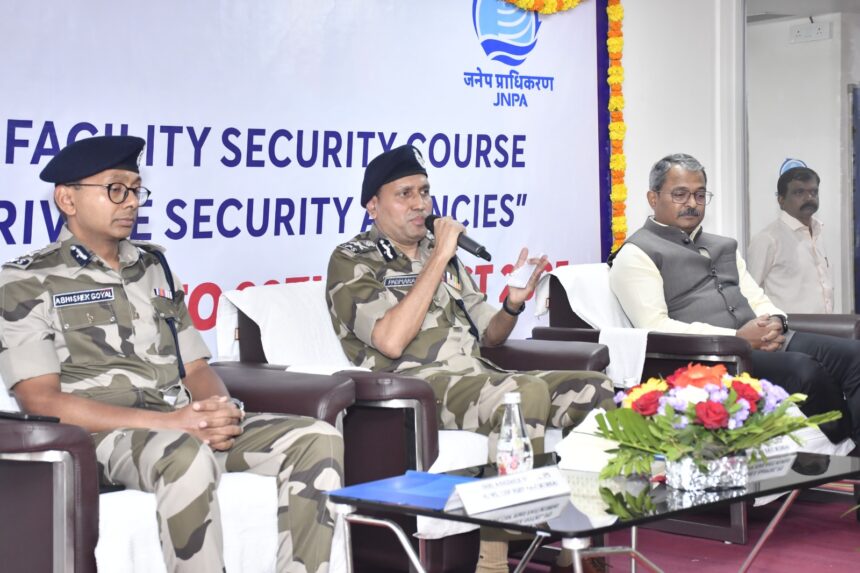NewzVille Desk
The Central Industrial Security Force (CISF) has launched its first-ever specialized training course for private security personnel deployed at ports. The initiative, rolled out simultaneously at Jawaharlal Nehru Port Authority (JNPA) Mumbai and Chennai Port Authority (ChPA), aims at strengthening India’s Hybrid Port Security Model through capacity building of private security personnel, standardization of port security protocols and ensuring compliance with international maritime codes across all the ports.
During the inaugural session at ChPA, Chennai, Sunil Paliwal, Chairperson, (ChPA), emphasized: “The introduction of this course marks a critical advancement in port security management.”
Supporting the initiative, S.R. Saravanan, Inspector General, CISF (South Sector), noted: “By providing focused training tailored to the complex environment of ports, we are empowering security personnel to perform their duties with confidence and professionalism, ultimately safeguarding critical infrastructure and trade.”
India has nearly 200 small and intermediate ports, though only around 65–68 are actively engaged in cargo operations. While CISF secures all 13 major ports, private security agencies play a key role in safeguarding cargo zones, warehouses, access gates, and installations at smaller ports.
Recognizing the need to develop a uniform and standardized security protocol across all Ports, the matter was deliberated with all stakeholders (Port Authorities, Customs, Shipping companies, Freight handling agents, etc) and accordingly it was decided to initiate this training curriculum as a Pilot project for the private security personnel of Ports.
The two-week “Port Facility Security Course,” is designed by CISF in consultation with the Directorate General of Shipping (DGS) and other stakeholders.
It will equip private security staff with essential knowledge of port operations, threat identification and emergency response. The course also covers legal frameworks, use of technical security gadgets, and international standards under the International Ship and Port Facility Security (ISPS) Code.
Training modules have been developed for structured training, ensuring uniformity in implementation of security rules and procedures. Delivered by instructors from CISF, Customs, Marine Department, and Port Health Organization, the program combines classroom learning with hands-on drills, preparing participants to respond effectively to security incidents.






